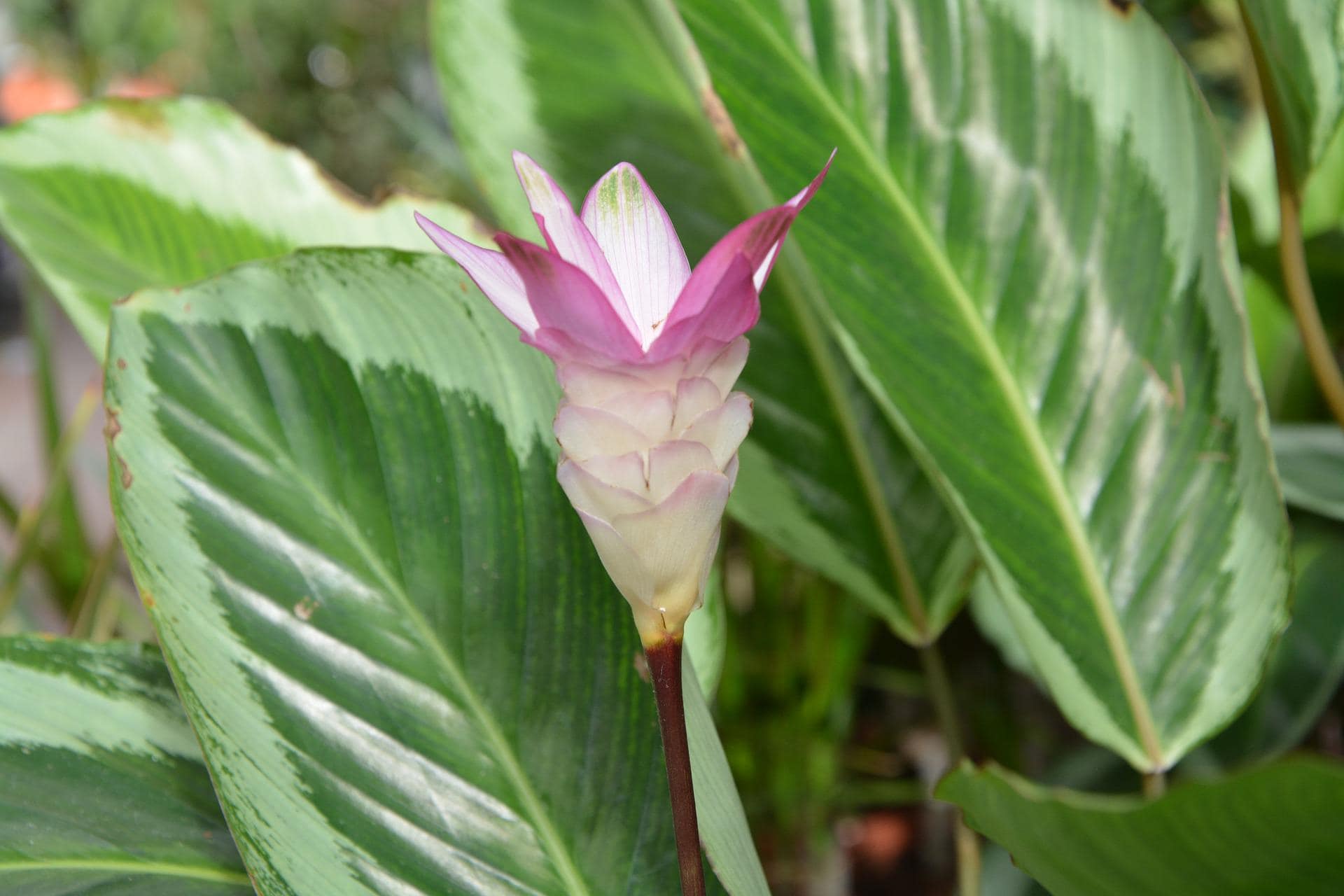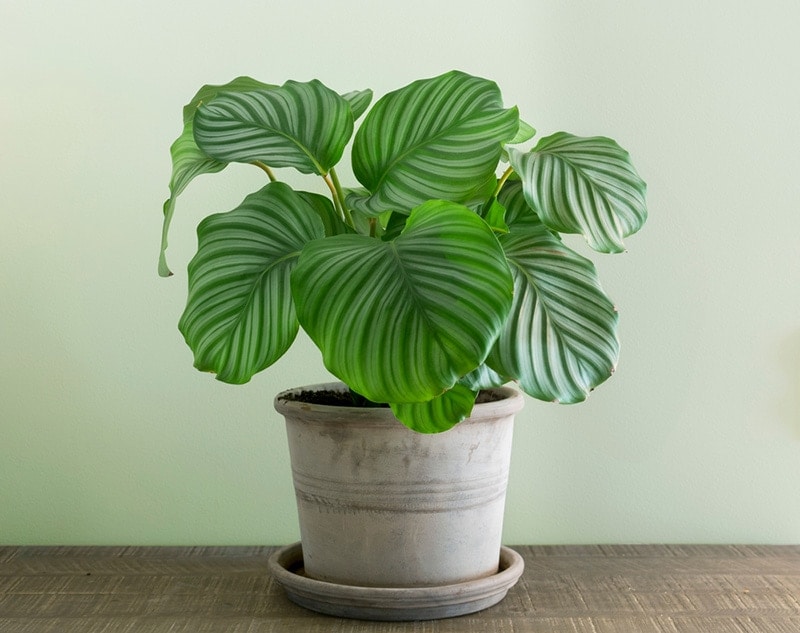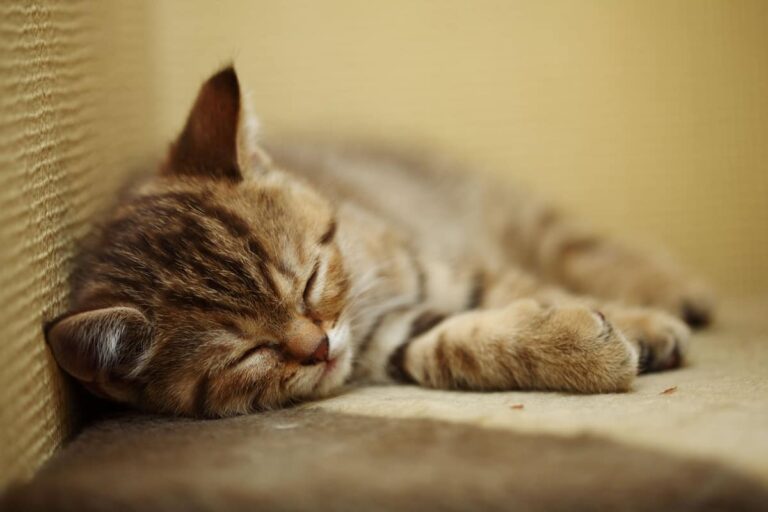When animal lovers want to add some greenery to their homes, they should be careful about what plants they bring in. Our pets, especially cats, love to chew on plant leaves. If the plants are poisonous to animals, it’s easy for them to get sick.
A common plant that is often recommended for newbie houseplant owners is the Calathea. People who are worried about their cats will want to know if this plant is dangerous for them to chew on. The short answer is no, your cat will not get sick from the calathea.
Find out more about this lovely plant that is safe for pets and other plants that you can leave in your home with your pets.
Calatheas are having a major moment right now as one of the most popular indoor plants. Their brightly patterned leaves in shades of green pink, and cream have earned them the nickname “peacock plant”. But for pet owners, an important question arises – are these trendy houseplants toxic to cats and dogs?
The good news is calatheas are considered non-toxic for pets by the ASPCA. But there are still some safety precautions to take when keeping calatheas in a home with curious cats dogs or other pets. This article provides a complete guide to safely growing calatheas if you have furry friends.
Are Calatheas Toxic?
The majority of common calathea varieties are non-toxic for cats and dogs Some examples of pet-safe calatheas include
- Rattlesnake Plant (Calathea lancifolia)
- Peacock Plant (Calathea makoyana)
- Zebra Plant (Calathea zebrina)
- Medallion Calathea (Calathea warscewiczii)
- Pinstripe Calathea (Calathea ornata)
- Freddie Calathea (Calathea fredie)
If ingested or chewed on, these calathea species may cause minor gastrointestinal upset in pets, including vomiting or diarrhea. But they do not contain any highly toxic compounds that are poisonous or life-threatening.
It’s always a smart idea to keep the ASPCA Animal Poison Control Center phone number handy just in case of an emergency. But overall, calatheas are considered very low toxicity for dogs and cats.
Are Calatheas Safe for Cats? Tips for Safety
While calatheas themselves may not be poisonous, cats may still chew on or damage the plants, making their safety around these houseplants questionable. Here are some tips for safely keeping calatheas in a home with cats:
Place Out of Reach
Cats are naturally drawn to new things in their environment, and an intriguing new plant is no exception. Make sure to place any calatheas up high on shelves, windowsills, or plant stands safely out of your cat’s reach.
Use Deterrents
Consider using cat deterrents around your calatheas, like aluminum foil, citrus peels, or scent repellents. Cats dislike these strong scents and textures. Reapply deterrents frequently to discourage temptation.
Provide Alternatives
Give your cat approved plants like cat grass or catnip to chew on instead. This curbs the allure to play with your decorative calatheas. Offer lots of enticing cat toys too.
Limit Access
When leaving the house, close doors to rooms containing calatheas to prevent unsupervised access. And supervise initial interactions between new kittens or cats and your indoor plants.
Display Out of Sight
A simple solution is to keep calatheas and other houseplants in an enclosed porch, sunroom, or plant room where pets do not have access. This also creates ideal growing conditions.
By taking a few precautions, you can safely grow gorgeous calatheas in your home even with a curious cat roaming around. Do your research before bringing a new houseplant home to ensure it’s approved for pets. Then take advantage of deterrents, placement, and distraction to protect both your plants and pets.
Are Calatheas Toxic to Dogs?
The answer is the same for dogs – calatheas are considered non-toxic but still may cause minor stomach upset if ingested. Again, it’s best practice to keep these statement-making plants out of reach of your dog.
Dogs are less likely than cats to chew on houseplants without reason. But their wagging tail could still potentially knock over a calathea perched on an end table. Follow these tips to safely grow calatheas around dogs:
-
Mount shelving on walls safely out of tail’s reach to display calatheas.
-
Use pet gates to block access to rooms where calatheas are kept.
-
Train “leave it” commands if your dog shows interest in the plants.
-
Keep plants on high surfaces dogs cannot access, not low shelves.
-
Remove or secure calathea leaves and flowers which may fall on the floor within reach.
While calatheas are considered non-toxic for dogs by the ASPCA, the biggest risk is gastrointestinal irritation or obstruction if large amounts are ingested. Prevent this by keeping calatheas safely out of reach for your plants’ and pet’s protection.
Protecting Other Household Pets
For pet owners with animals like lizards, turtles, rabbits, birds, or other exotic species, it’s smart to exercise caution with calatheas or keep them in an off-limits room. Not as much research has been done on the toxicity for these unique pets, so prevention is key.
The ASPCA does report calatheas are also non-toxic to horses as well. But again, any indoor plants are best kept completely out of reach from equine companions to stay on the safe side.
Enjoy Your Calatheas!
With proper precautions, calatheas can safely beautify your home even in the presence of CURIOUS felines. Their impressive patterned foliage adds major style to any indoor space. Select calatheas with sturdy, fleshy leaves that are less tempting for pets. Then display them creatively out of your furry friend’s reach and enjoy their beauty!
What Are Some Other Popular Non-Toxic Houseplants?
It is important to know which plants are safe for cats, whether you want to add more plants to your home or you just got a new cat and your apartment is already full of plants.
Another thing to keep in mind is that even though these plants are safe for your cat to eat, any plant your cat eats could make its stomach upset.
- Anthericum comosum, which is commonly known as a spider plant, is a beautiful plant that is safe for cats and doesn’t need much care. The leaves on this plant are long and green with a white stripe. They do well in a lot of different conditions. If your cat decides to chew on the spider plant leaves, they won’t get sick.
- Phyllostachys aurea—This plant can live for a long time. It is also called golden bamboo or fishpole bamboo. This plant usually appears in gardens because of its hardiness. It grows very quickly and could spread to other areas if not stopped, so you will need to cut it back a lot. And it is non-toxic to cats.
- Nephrolepis exalta: The Boston fern is another popular plant that is safe for your cat. The fronds have a rib in the middle and small leaflets on either side. The fronds can be anywhere from 20 to 98 inches long. Most of the time, it’s grown in hanging baskets, which keeps your cat from getting to it (unless you have a daredevil cat that likes to fly). So, we salute you and wish you clean surfaces.
- Echeveria elegans: These sage-colored succulents in the shape of a rosette are often called chickens and hens. They are popular as houseplants and in gardens. Cats, horses, and dogs can all use them without getting sick.
- Schlumbergera, also known as the Christmas or Easter cactus, is a flowering cactus with long, leaf-like pads that are connected to each other. Flowers grow at the ends of the pads and at the joints where the pads meet. As the name suggests, they bloom in the winter in the Northern Hemisphere, which is how they got their name. Your cat might be interested in the flowers and tendrils that they look like, but don’t worry—they are safe for cats. You won’t have to worry as much if your pet gets into this cactus.

What Is a Calathea?
The calathea is an attractive plant that brings a lush greenness to any space. The big leaves are mostly green with hints of white, pink, orange, or red, and the underside is a bright purple color. In the wild, these plants have flowers that are white, yellow, or purple, but they probably won’t flower inside.
Animal lovers with a green thumb should have these plants because they are safe for cats, dogs, and horses.

COMMON TOXIC & PET-FRIENDLY HOUSEPLANTS TO CATS
FAQ
What happens if a cat eats Calathea?
Are all Calatheas pet friendly?
Does Calathea need sunlight?
Is Calathea easy to care for?
Are Calathea plants safe for cats?
Calathea plants are common houseplants because they have beautiful leaves and require a relatively low level of care. While they make a lovely and bright addition to your home, are these plants safe for cats? The good news is that Calathea species are harmless to your cat.
Can a Calathea make a Cat Sick?
Cautious cat owners will want to know if this plant is toxic to their feline chewer, and the answer is simple: No, your cat will not become sick from the calathea. Read on to learn more about this beautiful non-toxic plant, as well as some other plants that are safe to have in your home along with your furry pals. What Is a Calathea?
Are Calatheas toxic to cats?
Let’s take a look at this popular houseplant and ask: are calatheas toxic for cats. “Dottie” shows off some of the unique coloring often found in these plants. The bright colors might imply toxicity for cats. Thanks to their beauty and ease of care, calathea plants often make their way into homes as favorite indoor plants.
Is Calathea poisonous to dogs?
Scientific Name: Calathea spp. Toxicity: Non-Toxic to Dogs, Non-Toxic to Cats, Non-Toxic to Horses Was this information helpful? You can support all our efforts to help people and pets by donating today.

